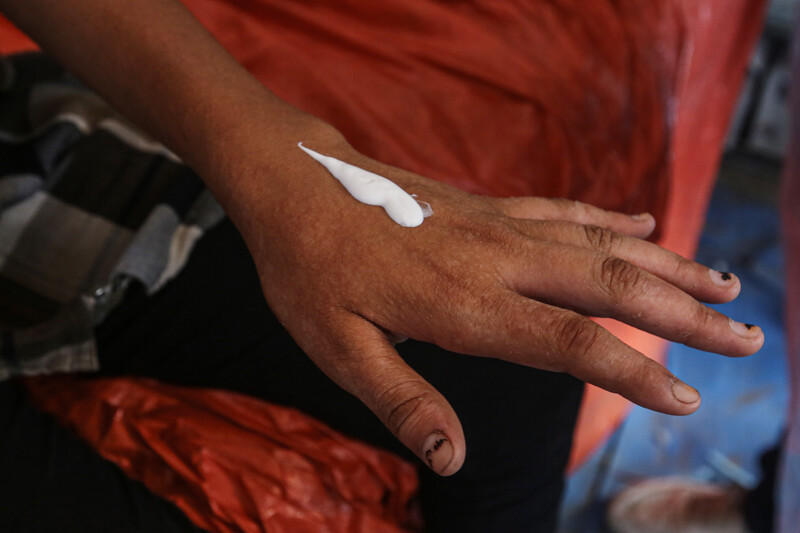The Electronic Intifada 21 January 2025

Overcrowded camps, poor hygiene and the accumulation of wastewater have caused many in Gaza to sufferr skin diseases, scabies and rashes. Doctors are struggling to care for patients due to extremely limited resources.
APA imagesMy family – my parents, my brother, my sister and myself – have been displaced twice over the past 15 months since we first had to leave our home in northern Gaza on 13 October 2023 to escape Israel’s genocidal violence.
During our displacement, my sister Marwa, 28, began to suffer from severe eczema on her hands.
In May, she noticed small red spots on her skin that caused constant itching. She initially thought it was a simple allergy that would go away.
At the time, Marwa had located locally produced soaps and detergents to use for washing and cleaning. The local production was necessary because Israel was preventing hygiene and cleaning materials from entering Gaza.
But the local products are not subject to any health inspection or control, and soon, Marwa’s skin began to crack and bleed.
I went with her to an UNRWA medical facility where a doctor told her she had severe eczema and apologized for not having any medicine that could relieve her symptoms.
Throughout 15 months of genocide, Israel also prevented medicine from reaching Gaza.
In the end, all the doctor could do was give Marwa some painkillers.
“Maybe it’ll give you some relief. But it won’t cure your condition.”
Prohibitive cost
Marwa first tried going to private pharmacies. They sometimes had medicines that had entered Gaza before October 2023.
The doctor had mentioned a specific medical cream, and Marwa found some in one pharmacist. But scarcity has caused prices to soar and it proved too expensive at $27 for just two days’ supply.
The lack of adequate treatment for her eczema has led Marwa to suffer psychologically. She is depressed that she is unable to help with our daily chores or do things she previously enjoyed like baking.
Marwa’s may seem a minor complaint in the carnage of Israel’s 15 month-long genocide, but it perfectly encapsulates the kind of suffering everyone in Gaza has been experiencing as a result of the lack of medicine and treatment.
Even simple diseases become chronic ones.
Every night as I see my sister struggling with pain when she tries to sleep, I wonder: What crime have we committed to live this painful reality? Why should Marwa suffer like this just because she was born in Gaza?
We are all waiting for life to return to what it should be.
Shaimaa Eid is a journalist based in Gaza.





